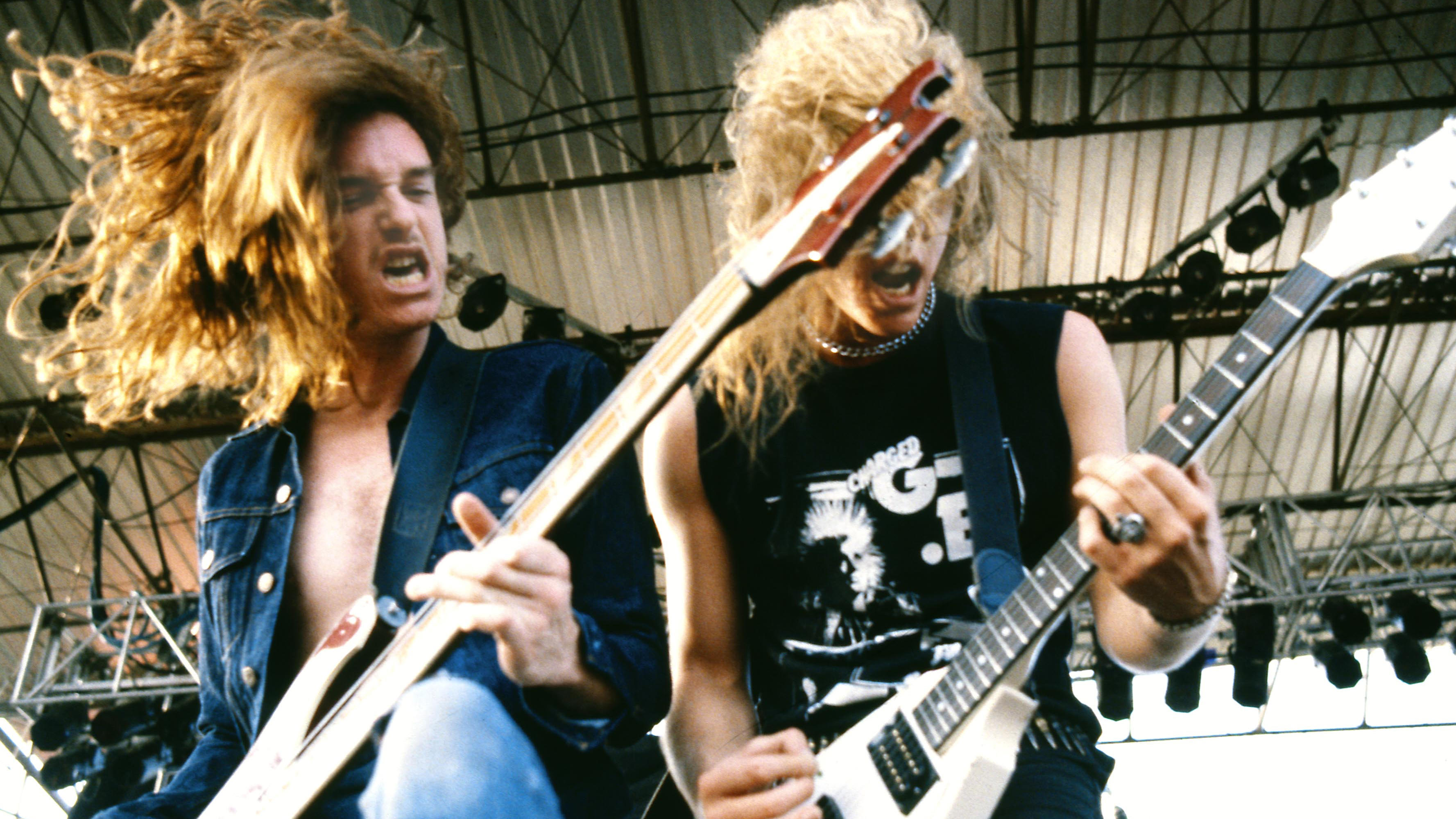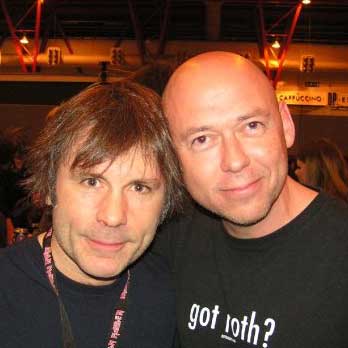“Cliff was the strongest of the four of us emotionally”: Lars Ulrich on how Metallica recovered from the death of bassist Cliff Burton
And how they chose Cliff’s replacement among 60 candidates

27 September, 1986 was the darkest day in the history of Metallica, when the band’s bassist Cliff Burton was killed in a tour bus accident in Sweden during the Master Of Puppets tour.
But within two months, the band were back on the road to finish that tour with new bassist Jason Newsted alongside guitarist/vocalist James Hetfield, lead guitarist Kirk Hammett and drummer Lars Ulrich.
And as Lars explained in an interview with Sounds in January 1987, they never considered breaking up the band - and believed that Cliff would have wanted them to carry on.
"I don't understand how anyone who knows what this band is about could honestly think that we'd give up,” Lars said. “The question was not: are we gonna pack it in or not? It was: how fast can we get the whole thing back on its feet again?"
“First of all, Cliff would be the first one to get pissed off if we sat around and cried and whined and shit. Secondly, with all due respect to Cliff, it's, like, history, there's nothing we can do about it.
“For the five years that we've been doing this, Metallica's always been about fighting against all the shit that's been in our way. Something always comes up and we always push on.
"Obviously, there'd never been anything like the shock and the whole disaster of what happened in the accident, but we never thought of packing it in. And now it's like we have even more reason to continue because we have to do it for Cliff too, if you know what I mean."
Want all the hottest music and gear news, reviews, deals, features and more, direct to your inbox? Sign up here.
"Cliff was the strongest of the four of us emotionally," Lars said. "And if he saw us sit around and feel sorry for ourselves for the next year on a couch in San Francisco he'd get pissed off. I know that he'd come round and kick us in the ass and tell us to get back out on the road and continue where we left off.
"I think everyone knew without even saying it to each other. It was just a matter of getting it out in the open.
“We had a meeting between the three of us and our management, and we decided that evening, which was the night before Cliff’s funeral, that we wanted to start as fast as we could.
“So we left the Japanese dates in the itinerary because we thought if we left them in — they were only about five weeks ahead — then that would give us the pressure of getting our shit together in a hurry so we wouldn't just sit around for six months.
"It was obvious from the beginning that we didn't want, with all due respect to Bob Daisley [veteran bassist, ex-Rainbow and Ozzy Osbourne], a 35-year-old hired musician to come in. We wanted someone young, someone hungry, someone new, a bit 'unknown' or whatever, and not someone that people would associate with another band.
"We started asking around in the underground and at independent record labels about the happening young bass players. There wasn't really time to advertise it, and we weren't sure that we wanted it advertised anyway. We just sort of spread the word around, and Jason's name was, for some reason, the one that came up most.
"We started auditioning around October 20, just doing one song with each of them — in, out, next, see ya. We did about 60 people in one week and we decided that we wanted to ask four of them back.
“What we wanted to do was spend a whole day with each of the four of them because for us it's more than just about whether he can play a song well. The whole vibe and the attitude of the person, how we would get on with him and the friendship and all that was just as important.
"We set up each day of hanging out with the person and Jason was second of the four. We played all day and went out for a meal, and then we went for the big test which was obviously the drink test. And somehow, I swear it wasn't planned, me and James and Kirk ended up in the toilet together pissing.
"So we're standing there pissing at three in the morning, out of our faces, and all three of us weren't saying anything, and I just said without looking at anybody, ‘That’s him, right?’ And the other guys said. ‘Yeah, that's him.’ And that was it."

Paul Elliott has worked for leading music titles since 1985, including Sounds, Kerrang!, MOJO and Q. He is the author of several books including the first biography of Guns N’ Roses and the autobiography of bodyguard-to-the-stars Danny Francis. He has written liner notes for classic album reissues by artists such as Def Leppard, Thin Lizzy and Kiss. He lives in Bath - of which David Coverdale recently said: “How very Roman of you!”